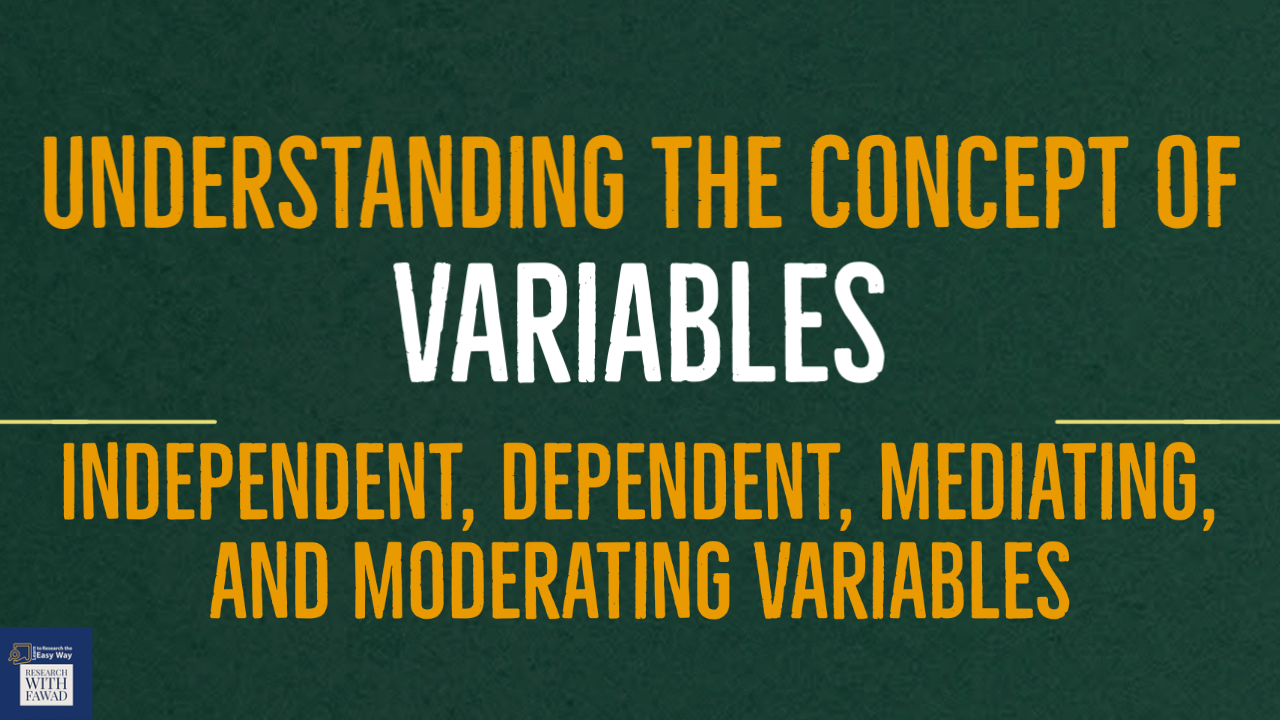This tutorial explores the fundamental concepts of independent, dependent, mediating, and moderating variables within the context of research and hypothesis formulation. These variables play crucial roles in constructing a conceptual framework and understanding the intricate relationships between different factors in research models.
In the realm of research and statistical analysis, variables are integral components that facilitate the investigation of relationships, effects, and impacts. This paper delves into the basic concepts of four types of variables: independent, dependent, mediating, and moderating variables. By understanding their definitions and roles, researchers can construct more precise hypotheses and better analyze the complexities of their research models.
Independent Variable (IV)
The independent variable, often abbreviated as IV, is a variable that exerts an influence on another variable. It is the cause or predictor in a research study. The IV is the variable that researchers manipulate or observe to determine its effect on the dependent variable. In experimental research, it is sometimes referred to as the “cause,” as it can be controlled or manipulated to study its impact on the dependent variable.
Dependent Variable (DV)
The dependent variable, or DV, is the variable being influenced or affected by the independent variable. It is also known as the outcome variable, criterion variable, or the “effect” in experimental research. The relationship between the independent and dependent variables is central to many research studies, as it helps establish cause-and-effect relationships.
Mediating Variables
Mediating variables, also known as intervening variables, occupy a unique position between the independent and dependent variables. They function as intermediaries that help explain the mechanism through which the independent variable affects the dependent variable. Mediation analysis elucidates the intricate pathways by which an IV’s impact is transmitted to the DV. Researchers can identify mediating variables through existing research findings or develop their own hypotheses based on the context of their study.
Serial Mediation
Serial mediation involves multiple mediating variables in a sequential fashion. In this scenario, the independent variable influences one mediator, which then influences another mediator, ultimately impacting the dependent variable. This approach allows for a more comprehensive understanding of the underlying mechanisms at play.
Parallel Mediation
Parallel mediation involves multiple mediating variables operating simultaneously and independently, each contributing to the relationship between the independent variable and the dependent variable. Researchers can explore multiple pathways through which the IV affects the DV, leading to a more holistic comprehension of the phenomenon under study.
Moderating Variables
Moderating variables play a distinct role in research by modifying the strength, direction, or nature of the relationship between the independent and dependent variables. A moderating variable is a third factor that interacts with the existing relationship, either strengthening, weakening, or completely altering it. The effect of a moderating variable is contingent on the specific conditions or values within that variable.
Moderating Example: Role Ambiguity
For instance, consider the relationship between servant leadership (IV) and organizational performance (DV). Role ambiguity, acting as a moderating variable, may weaken the positive relationship between servant leadership and organizational performance, indicating that the relationship’s strength depends on the level of role ambiguity within the organization.
Moderating Example: Corporate Social Responsibility (CSR)
Conversely, corporate social responsibility (CSR) can serve as a moderating variable that strengthens the relationship between servant leadership and organizational performance. In this case, improved CSR initiatives enhance the impact of servant leadership on organizational performance.
Integrating Different Types of Variables
To create a comprehensive research model, researchers can incorporate all these types of variables into a single framework. For example, a model may include servant leadership (IV) as the focal point, with mediating variables (e.g., identity and job performance) explaining the mechanism of impact and a moderating variable (e.g., CSR) enhancing or weakening the relationship. Formulating hypotheses that encompass these variables provides a structured approach to research design and analysis.
Summary
Understanding the distinctions and roles of independent, dependent, mediating, and moderating variables is essential for constructing robust research models and hypotheses. These variables collectively contribute to the development of a coherent conceptual framework that can yield valuable insights into the complex relationships within the research domain. By applying these concepts, researchers can enhance the rigor and depth of their empirical investigations.
